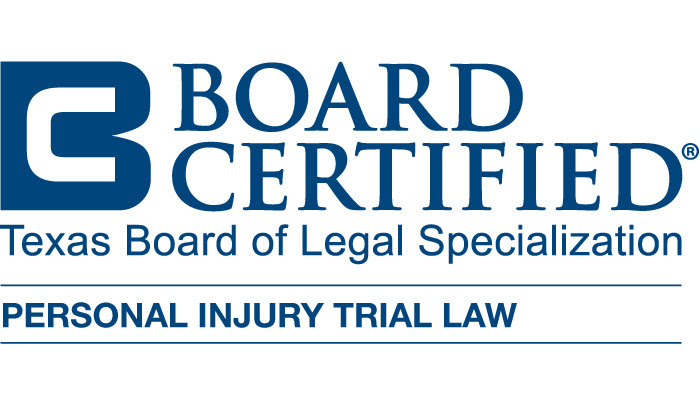Swimming pools are a fun and popular way for families to enjoy time together, especially during the warm summer months. However, while pools offer great entertainment, they also come with serious risks. Accidents can happen quickly, and unfortunately, pool accidents can lead to significant injuries, even fatalities. These tragedies leave families grieving and searching for answers. One of the questions that often comes up is, who is responsible when a pool accident occurs? Determining liability in such situations is essential, especially if medical bills, loss of income, or other damages arise as a result of the accident. At, Willumsen Law Firm, P.C., we are here to guide you through the legal process and help you navigate the complexities of your case.


Understanding Pool Safety Responsibilities
When it comes to pool safety, responsibility doesn’t fall on one single person or entity. There are many factors to consider, and different people may be involved. From the property owner to the pool equipment manufacturer, multiple parties may be liable depending on the circumstances of the accident. Understanding these responsibilities can help individuals and families navigate the difficult aftermath of an accident.
Pool owners, whether they are private homeowners or public businesses, are generally responsible for maintaining a safe environment around the pool. This means that pool owners must take reasonable steps to ensure that the area around the pool is secure and that proper safety measures are in place. This could include having fences around the pool, ensuring that the water is clean, and having safety equipment readily available. When a pool owner fails to maintain these standards, they may be held liable if an accident occurs.
Private Pool Owners and Their Responsibilities
Private homeowners who have pools must take precautions to protect not only their family and guests but also others who might enter their property. Even if someone enters the property without permission, such as a neighborhood child, the pool owner might still be held responsible. This is because pools are often considered “attractive nuisances.” The term refers to something that is so tempting to children that they may try to access it even if they know they shouldn’t. For this reason, it’s common for laws to require homeowners with pools to have fences with locks to prevent unauthorized access.
My focus is to give a voice to families who have suffered a wrongful death or a serious injury to a family member caused by an 18-Wheeler, commercial truck, or a drunk driver. Contact us today, we can help you.Helping Injury Victims for Over 25 Years
If a child enters a pool area and suffers an accident, the homeowner could be found liable for failing to secure the pool properly. Additionally, if a guest is injured while swimming, the homeowner might also be liable if the accident happened because of the property owner’s negligence. For example, if the pool was not maintained, had faulty equipment, or was not safe in other ways, the owner could face legal responsibility.
Public Pool Operators and Liability
Public pools, which include pools at community centers, hotels, gyms, or water parks, must adhere to strict safety regulations to protect swimmers. The operators of these facilities have a duty to ensure that the pool area is safe for the public. This includes maintaining the pool’s cleanliness, keeping equipment like diving boards or ladders safe, and ensuring the water’s chemical levels are balanced to avoid harm to swimmers. Lifeguards, if present, must also be properly trained and attentive at all times.
If a person suffers an injury at a public pool due to improper maintenance or negligent staff, the operators of the pool could be held liable. In these cases, it is not uncommon for both the pool management and the individual employees to be held responsible for failing to prevent the accident. Public pools must also ensure that they follow local regulations, including health and safety laws. Failure to comply with these regulations could further increase the liability in the case of an accident.
Pool Equipment Manufacturers and Defective Products
In some cases, a pool accident may not be the fault of the pool owner or operator at all. Instead, the accident could be caused by faulty or defective pool equipment. This could include pool filters, pumps, or even pool toys. If an injury occurs because a product malfunctions or is poorly designed, the manufacturer or seller of the equipment might be held responsible.
For example, if a pool drain cover is defective and causes a swimmer to be pulled underwater, the company that made the drain cover might be liable for the resulting injuries. These types of cases can be complex, as they involve proving that the product was defective and that the defect directly led to the injury. This is where experienced legal help becomes crucial in holding the correct parties accountable.
Lifeguards and Their Role in Pool Safety
Lifeguards play a critical role in maintaining safety at public pools. Their job is to monitor swimmers and step in if someone is in danger. However, if a lifeguard fails to perform their duties correctly, they could also be held liable in the event of an accident. This might include failing to notice a swimmer in distress or not responding quickly enough to an emergency.
In some cases, the lifeguard’s employer might share liability if it’s found that they did not provide proper training or hired someone unqualified for the job. For this reason, lifeguard supervision is an essential part of keeping swimmers safe in a public pool environment. Failing to provide adequate supervision can lead to serious legal consequences for both the lifeguard and the pool operators.
Related Videos
Choosing a Personal Injury Attorney
Types of Compensation in a Truck Accident Claim
Drowning Accidents and Wrongful Death Claims
Unfortunately, one of the most tragic outcomes of a pool accident is drowning. Drowning accidents often result in the loss of life, leaving families heartbroken and looking for justice. In such cases, a wrongful death claim may be filed to hold those responsible accountable. This type of claim can be made when a person’s death is the result of another party’s negligence or misconduct.
For instance, if a pool operator fails to maintain safe conditions, does not provide adequate supervision, or ignores safety regulations, they may face a wrongful death lawsuit. These cases are particularly devastating, as they often involve young children, but they serve an important purpose in seeking compensation for the family and ensuring that similar accidents don’t happen in the future.
Legal Considerations in Pool Accident Liability
Proving liability in a pool accident can be complicated, as many factors must be considered. Legal cases surrounding pool accidents often involve multiple parties, and gathering the necessary evidence is crucial. This might include reviewing maintenance records, gathering witness statements, or analyzing the condition of the pool and its equipment.
In addition, pool accident cases often involve navigating local and state laws related to pool safety. These laws can vary, and understanding them is essential in building a strong case. Working with a legal team that understands these complexities can make all the difference when seeking compensation for injuries or losses caused by a pool accident.
How a Legal Team Can Help After a Pool Accident
When a pool accident occurs, victims and their families can be left overwhelmed and unsure of what steps to take next. The legal process can feel confusing and stressful, particularly while dealing with physical recovery or emotional loss. This is where having the right legal representation can provide relief. An experienced legal team can help navigate the process, determine who is responsible, and fight for the compensation that victims deserve.
From investigating the accident to handling communications with insurance companies and the parties involved, legal professionals provide support through every step of the process. They understand the nuances of pool accident liability and can guide families through the legal options available to them.
Pool accidents can lead to devastating outcomes, but victims and their families should know that they have options. Holding those responsible accountable is not only about receiving compensation for medical bills and other costs but also about preventing future accidents from happening to others. When it comes to determining who is liable for a pool accident, there are often many parties involved, and each case requires careful consideration of the facts.
If you or a loved one has been involved in a pool accident and are seeking legal guidance, Willumsen Law Firm, P.C. is here to help. Our experienced team is ready to stand by your side, ensuring that those responsible are held accountable for their actions. Reach out today to learn how we can assist you in getting the justice and compensation you deserve. Contact us to discuss your case, and let us guide you through this challenging time.



